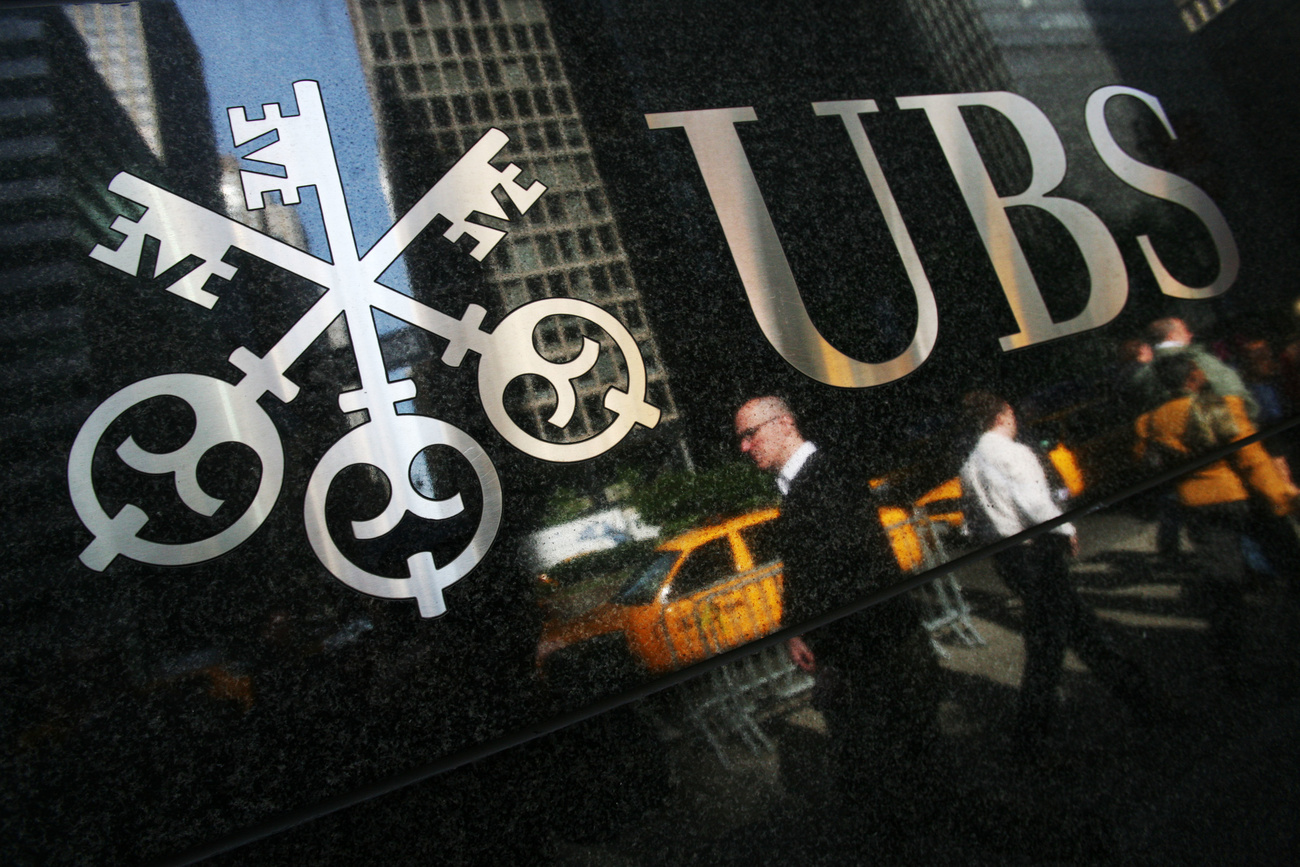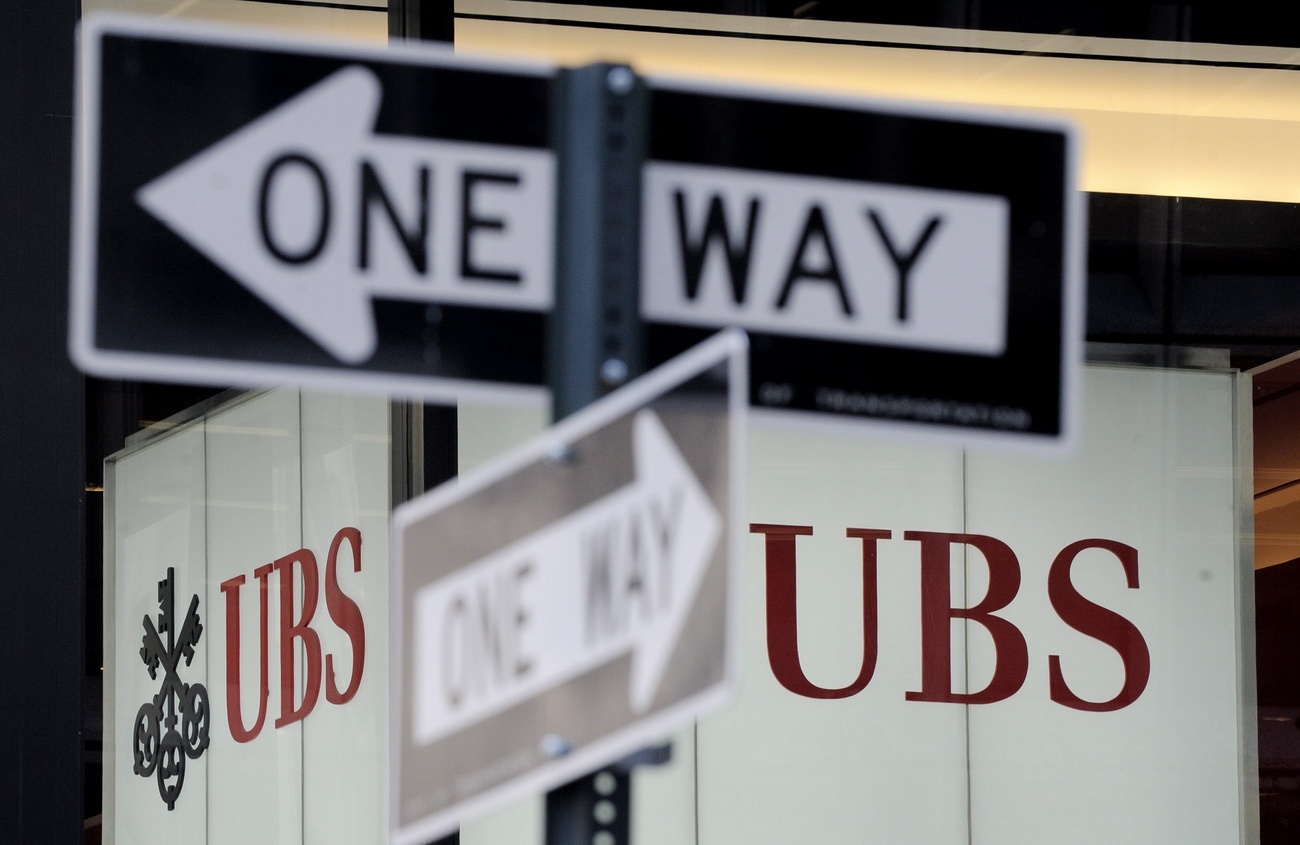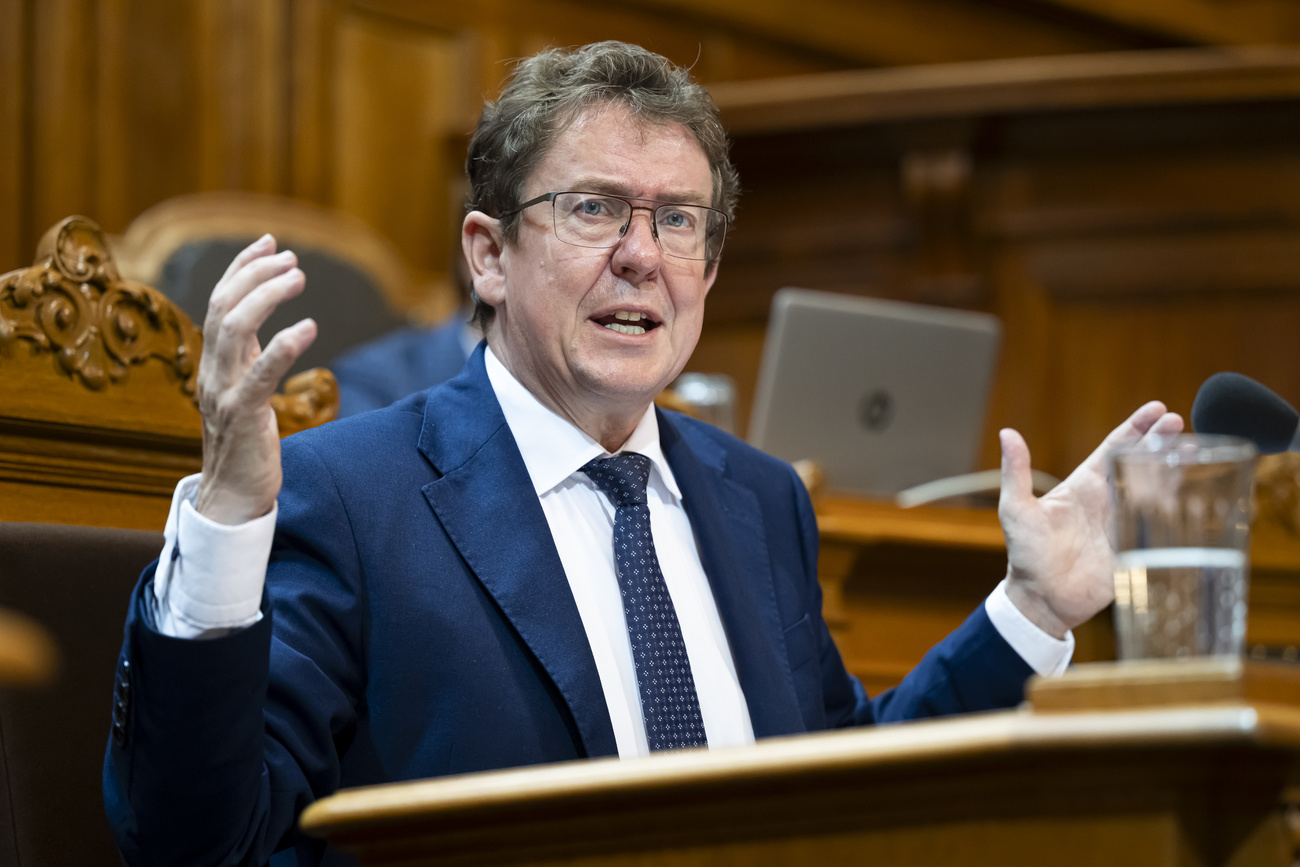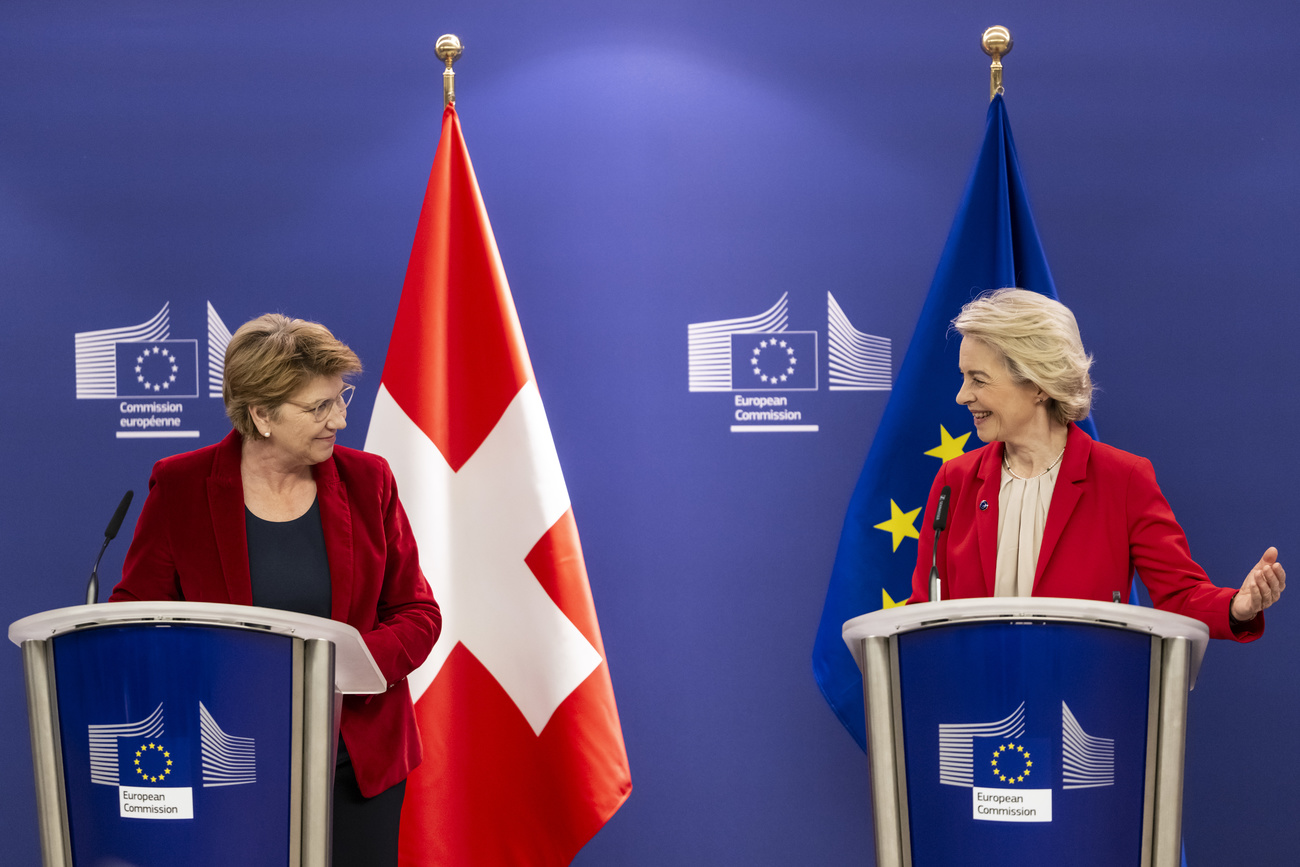
Switzerland Today
Dear Swiss Abroad
On the eve of the high stakes US presidential election, it seems that little Switzerland is playing its part, mainly through its biggest bank: UBS.
And while cabinet minister Albert Rösti offended political and diplomatic sensibilities last week by declaring that he was "leaning towards Trump", he made a half-apology on Sunday evening.
Why a half-apology? Find out in your daily newsletter.
Happy reading

Thanks to the political action committee (PAC) system, Swiss companies are financing the US presidential campaign. UBS is one of the most generous donors.
By analysing data provided by the non-profit organisation Open Secrets, Swiss public broadcaster RTS has found that Switzerland has injected almost three million dollars into the current US election campaign. Switzerland is the second most generous country after the United Kingdom.
Under current law, only US nationals or green card holders may make donations to political figures. However, it is possible for a foreign subsidiary to set up its own PAC. Through this committee, it can then collect contributions from its American employees.
Several large Swiss companies have set up PACs in the United States. Among the most generous are pharmaceutical giants Novartis and Roche, insurers such as Zurich Insurance Group, and tech companies such as Garmin.
But Swiss banking giant UBS holds the record for donations, with $1.49 million distributed since the beginning of 2023. The bank is also at the top of the podium for foreign-origin PACs, with ever-increasing sums.
- More details on RTSExternal link (in French)

“I am aware that a cabinet minister should not speak about or discuss foreign elections,” says Albert Rösti. Last week, he sparked controversy when he said he was leaning towards Donald Trump.
Albert Rösti clarified his position on Sunday’s RTS evening news programme. He stated that he had spoken as an individual and not as a cabinet minister. He did not wish to comment further.
During the interview, which lasted just under ten minutes, other controversial subjects were discussed, in particular the question of a return to nuclear power in Switzerland. The Energy Minister supports lifting the ban on building new power stations. In his view, geopolitical developments and rising demand are jeopardising the country’s energy independence.
Rösti also supports the widening of part of Switzerland’s motorways, which will be put to the vote on November 24. He disagrees with the idea that more roads automatically mean more cars, and would like to see bypass traffic diverted to the motorways to reduce traffic in the suburbs.
- Albert Rösti on RTSExternal link (in French)

The new draft bilateral agreement between Switzerland and the European Union (EU) should be ready by the end of the year. It could prove much more costly than the previous one.
On Wednesday, the Federal Council is expected to determine the amount of financial contributions to EU cohesion. Switzerland already pays CHF 130 million a year to certain EU countries, such as Romania and Bulgaria, to promote their economic and social development. The aim of this so-called cohesion contribution is to reduce inequalities within the EU.
Norway, which is not a member of the EU either, pays €390 million a year for access to the internal market. According to the NZZ am Sonntag, the EU would like to apply similar criteria to Switzerland. This contribution comes at a time when the Swiss government is seeking to cut costs in almost all areas.
However, the most sensitive point in the forthcoming negotiations remains immigration and Switzerland’s request for a safeguard clause. Differences remain in other areas too, notably public transport. The EU wants European rail service providers to be able to operate in Switzerland without having to cooperate with a Swiss partner.
Despite all the areas of disagreement, supporters of a bilateral agreement believe that a conclusion is possible by the end of the year. “I hope they will be able to conclude the dossier before Christmas,” says Centre parliamentarian Elisabeth Schneider-Schneiter. For NZZ, the question now is “what present will be under the Christmas tree”.
- More details in the NZZ am SonntagExternal link (in German)

In exchange for carbon offset certificates, Switzerland is financing electric buses in Thailand. But the company that manufactures them is accused of violating trade union rights.
For just over two years, Switzerland has been supporting a private electric bus project in Bangkok as part of the Paris Climate Agreement. However, according to the German-language magazine Beobachter, labour rights problems have arisen on several occasions.
In an interview with SRF’s South-East Asia correspondent, one of the employees accused Absolute Assembly of dismissing him when he had just set up a trade union. Shortly afterwards, a second founding member was reportedly sacked. Staff were also allegedly promised benefits if they did not join the union. Energy Absolute, the parent company of Absolute Assembly, denies these accusations.
Georg Leutert, from the international trade union federation IndustriALL, contacted the Swiss government to ask it to intervene with the Thai company. “Unfortunately, we find that international investors often pay no attention to employees’ rights and trade union rights,” he says. Under the Paris Climate Agreement, however, these foreign partners have a responsibility to ensure that labour standards are respected.
The Federal Office for the Environment (FOEN), which is monitoring the project, is taking the criticism very seriously and will be investigating the allegations. If any human rights violations are found, the Swiss government will draw the appropriate conclusions, which could include the termination of Swiss support.
- The details on SBC (in FrenchExternal link, GermanExternal link and ItalianExternal link)

Picture of the day
With its many mountains, Switzerland is an ideal country for paragliding. Paragliding is the most popular aerial sport.
In the image, two pilots take off at dawn on November 1 from Alp Scheidegg, above the municipality of Wald in the canton of Zurich.
Adapted from French by DeepL/ac

In compliance with the JTI standards
More: SWI swissinfo.ch certified by the Journalism Trust Initiative








